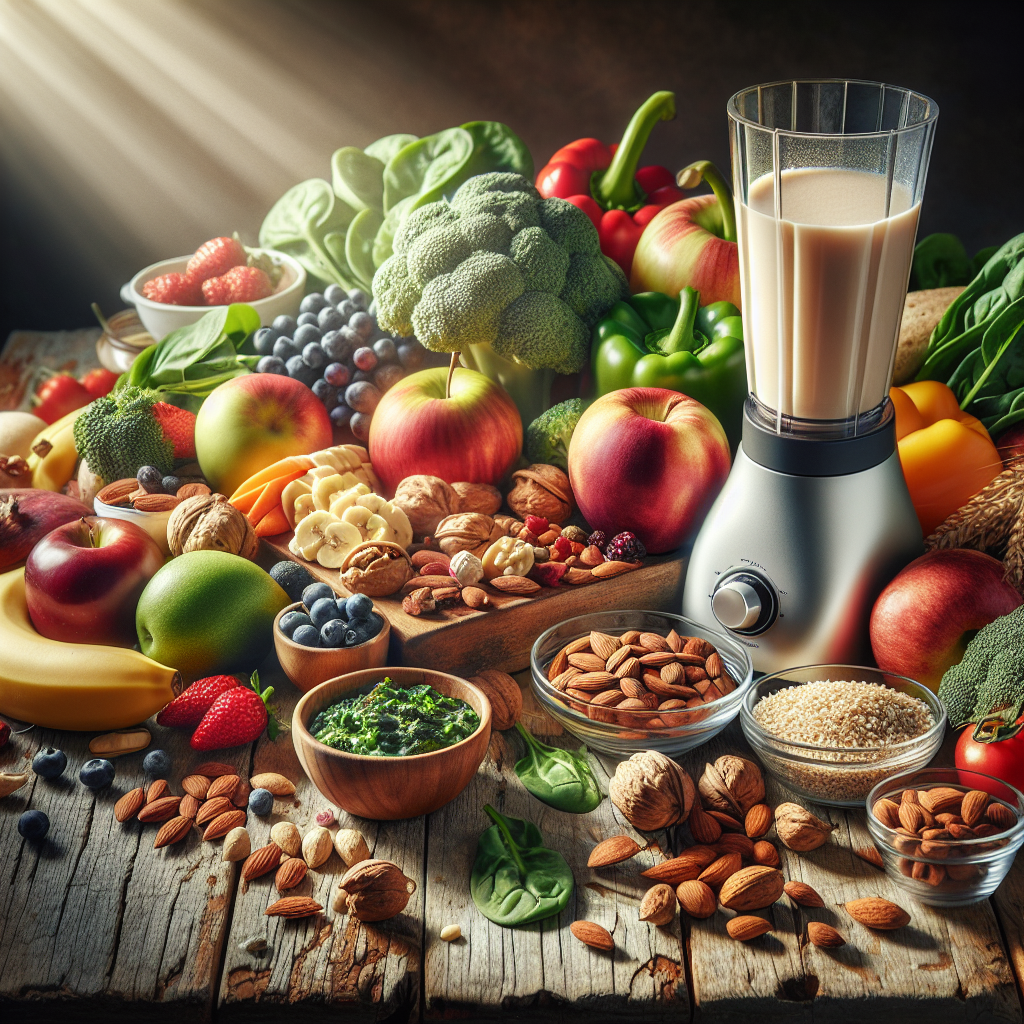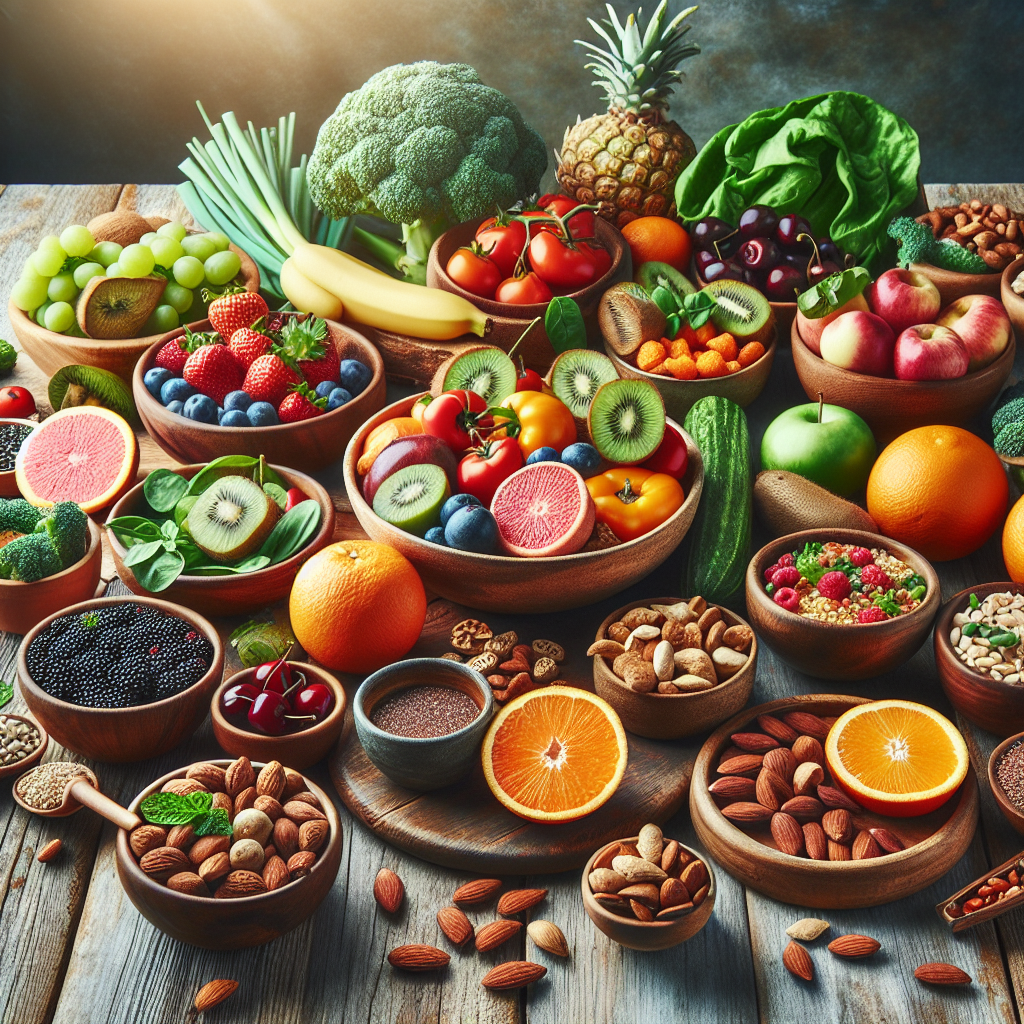In recent years, the vegan diet has surged in popularity, moving beyond a mere dietary choice to a global movement rooted in ethics, health, and environmental sustainability. Unlike traditional diets, a vegan diet excludes all animal products, embracing plant-based foods such as fruits, vegetables, grains, nuts, and seeds.
One of the compelling reasons people turn to a vegan diet is its myriad of health benefits. Scientific studies have shown that a well-planned vegan diet can help lower cholesterol levels, reduce the risk of heart disease, and aid in weight management. Furthermore, due to its high fiber content, a vegan diet promotes better digestive health and can help prevent certain types of cancer.
Beyond health, the vegan diet is celebrated for its positive impact on the environment. By reducing reliance on animal farming, which is a major contributor to greenhouse gas emissions, deforestation, and water pollution, veganism supports more sustainable food production practices.
For those new to veganism, incorporating plant-based milk alternatives can be a delicious and easy first step. With MilkDepot.ca's revolutionary milk making blender, you can create fresh, filtered milk from any nut, grain, or seed in less than 60 seconds. It's a fantastic way to enjoy the benefits of a vegan diet while exploring a variety of flavors.
Get yours today! https://milkdepot.com/products/milkmaker
Health Benefits of Vegan Diet
Adopting a vegan diet offers a multitude of health benefits that go beyond just weight management. One of the most significant advantages is its potential to improve heart health. Research has demonstrated that a vegan diet can help lower blood pressure, reduce cholesterol levels, and decrease the risk of heart disease. This is largely due to the diet's emphasis on whole, plant-based foods that are high in fiber, antioxidants, and healthy fats.
A vegan diet is also beneficial for those looking to manage or prevent type 2 diabetes. Plant-based foods have a low glycemic index, which helps in maintaining stable blood sugar levels. Additionally, the high fiber content in a vegan diet aids in better digestion and promotes a feeling of fullness, which can help with weight control.
Another notable benefit is the potential for cancer prevention. Studies have indicated that a diet rich in fruits, vegetables, and whole grains can reduce the risk of certain types of cancer, including colorectal and breast cancer. The antioxidants and phytochemicals found in plant-based foods play a crucial role in protecting cells from damage.
Moreover, a vegan diet can enhance kidney function and reduce the risk of developing kidney disease. Plant-based proteins are easier for the kidneys to process compared to animal proteins, which can be taxing on the kidneys over time.
Lastly, many individuals report improved skin health after transitioning to a vegan diet. The increased intake of vitamins, minerals, and antioxidants helps to improve skin texture, reduce acne, and promote a natural glow.
Overall, the health benefits of a vegan diet are extensive, making it a compelling choice for those looking to improve their overall well-being.
Environmental Impact of Veganism

One of the most compelling reasons to adopt a vegan diet is its positive impact on the environment. The production of plant-based foods generally requires fewer resources compared to the production of animal-based foods. For instance, growing crops for direct human consumption uses significantly less water and land, and produces fewer greenhouse gases.
Livestock farming is a major contributor to deforestation, as vast tracts of forest are cleared to create pastureland and to grow feed crops. This not only leads to habitat loss for countless species but also contributes to the decline of biodiversity. By choosing a vegan diet, you are helping to reduce the demand for these destructive practices.
In addition to deforestation, animal agriculture is a significant source of methane and nitrous oxide, two potent greenhouse gases. Methane is produced during the digestive processes of ruminant animals such as cows, while nitrous oxide is released from manure and the use of synthetic fertilizers. Both gases have a much higher global warming potential than carbon dioxide, making them critical targets for mitigation efforts. By reducing or eliminating animal products from your diet, you can significantly decrease your personal carbon footprint.
Water scarcity is another pressing environmental issue that veganism can help address. Animal agriculture is extremely water-intensive, requiring thousands of gallons of water to produce a single pound of meat. In contrast, plant-based foods like grains, legumes, and vegetables require far less water. Transitioning to a vegan diet can therefore play a crucial role in conserving this precious resource.
Furthermore, the pollution from animal farming operations can contaminate water bodies with nitrates, phosphates, and other harmful substances, leading to issues like algal blooms and dead zones. Plant-based agriculture generally has a much lower impact on waterways, thereby promoting cleaner and healthier ecosystems.
In summary, adopting a vegan diet is not just a personal health choice but also a powerful way to contribute to the well-being of our planet. By making this shift, you can help mitigate climate change, conserve vital resources, and protect the Earth's biodiversity.
Economic Advantages of Vegan Diet

Adopting a vegan diet can bring significant economic advantages, both on a personal and broader societal level. One of the most immediate benefits is the potential for substantial savings on your grocery bill. Plant-based foods such as beans, lentils, rice, and seasonal vegetables are often much more affordable than meat, dairy, and other animal products. By focusing on these cost-effective staples, you can enjoy a nutritious diet without breaking the bank.
Additionally, the shift towards a vegan diet can reduce healthcare costs in the long run. Numerous studies have shown that a well-balanced vegan diet is associated with lower risks of chronic diseases such as heart disease, diabetes, and certain types of cancer. By maintaining a healthier lifestyle, you can potentially reduce your medical expenses, including doctor visits, medications, and treatments.
On a broader scale, the economic advantages of a vegan diet extend to the agricultural sector and beyond. Traditional animal farming is resource-intensive and often less efficient than plant-based agriculture. Growing crops for direct human consumption requires fewer inputs like water, land, and energy, which can lead to lower production costs. This efficiency can translate into lower prices for consumers and increased profitability for farmers who adopt sustainable practices.
The economic benefits of veganism also encompass the job market. As demand for plant-based products continues to rise, so does the need for innovation and development within the food industry. This creates new opportunities for entrepreneurs, food scientists, and other professionals to contribute to the growing market for vegan foods and products. Furthermore, supporting plant-based businesses can stimulate local economies and foster community resilience.
Reducing reliance on animal agriculture can also alleviate some of the financial burdens associated with its environmental impacts. For example, governments and taxpayers often bear the costs of managing pollution, habitat destruction, and public health issues linked to industrial farming practices. By embracing a vegan diet, society can potentially save billions of dollars in environmental remediation and healthcare costs.
Overall, the economic advantages of a vegan diet are multifaceted and far-reaching. By making the switch, you not only invest in your own financial well-being but also contribute to a more sustainable and economically stable future for all.
Common Myths About Veganism

The vegan diet is often surrounded by various myths and misconceptions that can deter people from making the switch. Let's debunk some of the most common myths about veganism to provide a clearer understanding.
Myth 1: Vegans don't get enough protein. This is perhaps the most prevalent myth about veganism. In reality, there are numerous plant-based sources of protein, such as lentils, chickpeas, tofu, tempeh, quinoa, and various nuts and seeds. A well-planned vegan diet can easily meet and even exceed daily protein requirements.
Myth 2: Vegan diets are boring and restrictive. On the contrary, a vegan diet can be incredibly diverse and flavorful. With a wide variety of fruits, vegetables, grains, legumes, nuts, and seeds, the possibilities for delicious and nutritious meals are endless. Additionally, the rise in popularity of veganism has led to an explosion of innovative plant-based products and recipes.
Myth 3: Vegans can't get enough essential nutrients. While it's true that certain nutrients like vitamin B12, iron, and omega-3 fatty acids are more readily found in animal products, they are also available in fortified foods and supplements. Many plant-based foods are rich in these nutrients, and with mindful planning, a vegan diet can be nutritionally complete.
Myth 4: Veganism is too expensive. While some specialty vegan products can be pricey, the core components of a vegan diet—beans, rice, pasta, vegetables, and fruits—are often cheaper than meat and dairy. Shopping seasonally and in bulk can further reduce costs, making veganism accessible for any budget.
Myth 5: Veganism is only for the privileged. This myth overlooks the fact that many traditional diets around the world are largely plant-based. People from various cultural and socioeconomic backgrounds have been thriving on plant-based foods for centuries. Veganism is not limited to a specific demographic; it's a viable option for everyone.
Myth 6: Vegan diets lack variety and taste. The notion that vegan food is bland is far from the truth. Vegan cuisine includes a wide array of flavors and textures, and with the right spices and cooking techniques, plant-based meals can be incredibly satisfying and delicious. The growing number of vegan cookbooks, blogs, and food channels also provide endless inspiration for tasty vegan dishes.
By addressing and debunking these common myths, we can foster a more accurate understanding of veganism and encourage more people to explore the benefits of a plant-based diet. Education and awareness are key to dispelling misconceptions and promoting a healthier, more sustainable lifestyle.
Tips for Transitioning to Vegan Diet

Transitioning to a vegan diet can seem daunting at first, but with the right approach, it can be an enjoyable and rewarding journey. Here are some practical tips to help you make a smooth transition:
1. Educate Yourself: Understanding the benefits of veganism and the nutritional aspects of a plant-based diet is crucial. Read books, watch documentaries, and explore reliable online resources to equip yourself with the necessary knowledge.
2. Start Gradually: You don't have to go vegan overnight. Start by incorporating more plant-based meals into your diet and gradually reducing your intake of animal products. This approach allows your taste buds and digestive system to adjust slowly.
3. Plan Your Meals: Planning your meals in advance can help you stay on track and ensure that you get a balanced diet. Look for easy and delicious vegan recipes that you can prepare at home. Meal prepping can also save you time and effort during the week.
4. Stock Up on Vegan Staples: Keep your pantry stocked with essential vegan ingredients such as beans, lentils, grains, nuts, seeds, and vegetables. Having these staples on hand makes it easier to whip up nutritious meals without much hassle.
5. Experiment with New Foods: One of the joys of transitioning to a vegan diet is discovering new foods and flavors. Be open to trying different fruits, vegetables, grains, and plant-based products. You might find some new favorites along the way!
6. Find Support: Joining vegan communities, either online or in person, can provide valuable support and inspiration. Connecting with others who share your journey can help you stay motivated and offer practical advice.
7. Be Patient and Compassionate with Yourself: Transitioning to a vegan diet is a personal journey, and it's okay to make mistakes or face challenges along the way. Be kind to yourself and remember that every step towards a plant-based diet is a positive one.
By following these tips, you can ease the transition to a vegan diet and enjoy the numerous health and environmental benefits it offers. And if you're looking for a convenient way to make fresh, delicious plant-based milk at home, check out our unique blender on MilkDepot.com. Get yours today!
